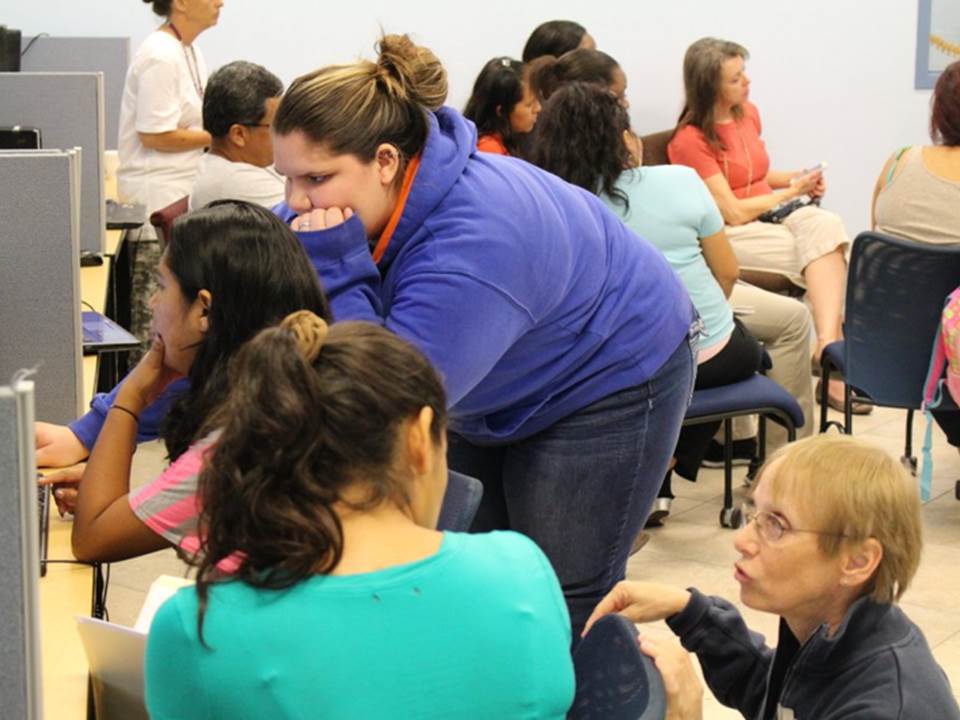A new retraining program makes long-term commitments to drive transformational change.
By Caitlin Johnston –

All Whitney Mack wants is a better life for her family.
But it’s hard to provide for her three daughters when she makes only $9 an hour as a housekeeper for nursing homes. She usually works six days a week, but even then, her paycheck for two weeks only brings in around $450—just barely enough to pay the daycare, cover her probation program fees and put gas in the car.
That’s why Mack, 30, is so excited about pursuing her Commercial Driver’s License (CDL), which will allow her to drive trucks locally. The minimum pay for that job? $15 an hour. That’s a 66 percent increase over her current earnings.
“It will be more stable,” Mack said. “Hopefully I don’t really have to stress about not having enough money then, and I can focus on getting a better lifestyle for my kids.”
Mack decided to pursue her CDL after completing The Salvation Army’s Impact Program in Sarasota, Fla., a local aspect of the Army’s larger Pathway of Hope initiative. The two-generational program focuses on helping both parents and children develop life skills and enhance their education.
One of the biggest challenges for many parents whose families are in poverty is identifying a stable job that pays a living wage. That’s precisely what the Impact Program is designed to do.
The program aims to retrain parents for jobs in sectors that have higher wage rates and job growth. Organizers design “career in a year” pathways that provide options for parents.
It’s all about matching an individual’s skills and preferences with the right career and training program, said Chris Johnson, Sarasota’s program manager for Pathway of Hope and Emerge, a related initiative.
“We look at tracks that will allow them to find employment once they graduate,” Johnson said. “We look at their background, their skills, all those things and create a path that’s very unique for the individual, that works for them and their family.”
National Pathway of Hope Coordinator Sabrina Kiser formerly worked as a case manager in the program. She recalls many of her residents coming in and saying they wanted to be a certified nursing assistant (CNA) without knowing much about the job itself, just hearing that CNAs made decent money.
“I’d ask them, ‘What do you think a CNA does?’” Kiser said. “‘What do you think about cleaning up adult diapers? How do you think you’d do sticking people with needles? Bodily fluids?’
“We’d get to the conclusion that they didn’t really want to be a CNA, but they knew that could they could get training in that and move to a career. So we look at what they really are interested in.”

For Mack, the decision was easy. She likes driving. But more importantly, she likes that the training program to earn her certification only takes three weeks. This is especially important as she will not be working during that time, and thus won’t be earning a paycheck.
“Going without for three weeks is hard, but it’s a lot better than six months,” she said.
The Salvation Army tries to assist participants during their training and course work so it’s not too much of a financial burden, Johnson said.
Impact, and Pathway of Hope, stand out nationwide as examples of anti-poverty programs with tangible results.
Solving poverty isn’t easy, said National Program Secretary Lt. Colonel David Kelly. If it was, we wouldn’t be struggling to address the same issues decades after President Lyndon Johnson announced the country was going to wipe out poverty, he said.
“Congressional folks, they make it sound like there are some obvious fixes,” said Kelly, who testified before the Ways and Means Committee last year. “[But] it’s hard work to get people out of poverty.”
The Salvation Army set a goal last year of raising $200 million in five years to roll out Pathway of Hope nationwide. A majority of the fundraising is done on the local level, Kelly said.
And while the Army hasn’t been as successful with fundraising yet as it had hoped, many donors are receptive to the idea of funding programs that result in long-term, quality changes for those involved.
“Funders today are not really interested in paying for a certain number of meals or nights of shelter,” Kelly said. “They’re looking for outcomes not outputs. They are looking to see transformational change.”
Knowing that, the Army decided to ask donors to make a longer-term investment because the type of change the program seeks to produce requires significant time—usually about a year-and-a-half to two years of work. And many funders stepped up.
“They’re quite happy with an 18-month investment if it makes a real change as opposed to a year and a half from now still serving the same number of meals in the same shelters,” Kelly said.
“People are realizing there’s a societal benefit to more people in the workforce and more people not needing as much government assistance,” Kiser said. “Some people are looking for a silver bullet, but if poverty were that easy to solve, we would’ve done it already.”











